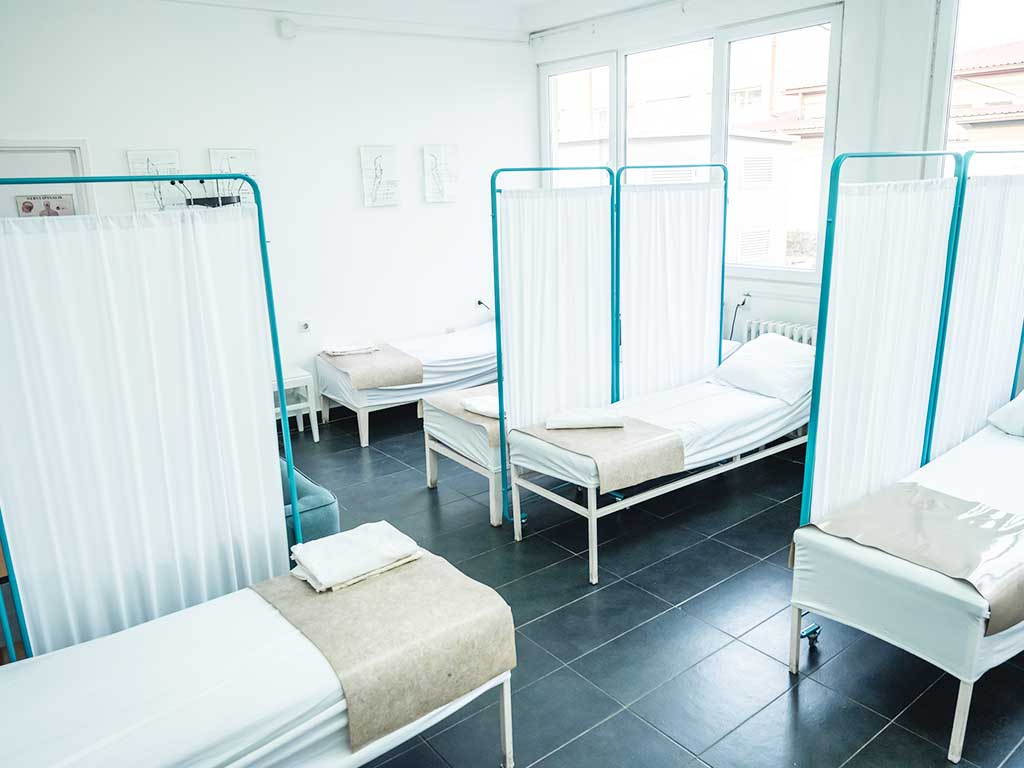ZAEV Public health awareness program 24-25

7 April - World Health Day
Celebrating the World Health Day on 7 April, which each year draws attention to a specific health topic of concern to people all over the world on the date that marks the anniversary of the founding of the World Health Organization, by launching training for the introduction of “Medical Clowns” in the municipality of Strumica. Guided by the fact that the “Medical Clowns” is a program that has proven to be extremely successful in treating patients worldwide, its results should be aimed at helping hospital patients reduce stress, anxiety and the fear of doctors by the children. With the training completed (psychology, social work and care giving), our goal is the future medical clowns, through a different approach to psychosocial support that is most important for patients’ health, to result in distraction in the patient’s attention from difficult therapies to the patients and children who have been in hospital for a long time.
14 June - World Blood Donor Day
1 October - International Day of Older Persons
Celebrating International Day of Older Persons on 1 October, declared by the United Nations General Assembly to raise awareness of the problems faced by the elderly, and to highlight the contribution of the elderly to society. The celebration will be realized by organizing a “Week dedicated to the care of the elderly”, which will include activities such as visits to the elderly, lonely and frail people in their homes, providing food aid and hygiene items, as well as a visit to nursing homes on the territory of the municipality of Strumica.
10 October - World Mental Health Day
Celebrating World Mental Health Day on 10 October, supported by the World Health Organization, given the pressures imposed by the new way of life. Especially in the young population, the basis for the development of depression is created, because they as a target group are more under the pressure of influence and excessive use of social media, which are not a picture of reality and create conditions for social isolation with a sense of rejection. According to the above, activities will be implemented to prevention against excessive use of social networks, fear of exclusion, fear of missing out, self-aggressive behaviour, social dysfunction, alienation, isolation and loneliness, which should result in increased awareness of the seriousness of this problem.
27 December - International Day of Epidemic Preparedness
Celebrating International Day of Epidemic Preparedness on 27 December, declared by the United Nations General Assembly and the World Health Organization, because of the need to promote the importance of epidemic preparedness, prevention and partnership. Activities for the protection of the life and health of the citizens will be realized, as a direct contribution to increasing the quality of patient care.
These observations will be realized through the following activities:
Health Innovation Challenges and Wellness Challenges
- Health Innovation Incubator: Establish a comprehensive year-long incubator program offering seed funding, mentorship, co-working spaces, access to healthcare data and partnerships with tech companies, while organizing quarterly demo days where teams present progress and receive expert feedback.
- Interactive Health Kiosks: Install kiosks equipped in high-traffic areas with biometric sensors for real-time health assessments (e.g., blood pressure, heart rate), providing personalized health tips and consultations with health professionals.
- Celebrity Blood Donor Challenge: Celebrities compete in challenges to promote blood donation to raise awareness of the importance and the huge meaning.
- Corporate Blood Donation Challenge: Companies compete to see which can donate the most blood within a designated time frame where employees participate by donating blood and the company with the highest number of donations receives a trophy and public recognition. This challenge fosters teamwork, boosts corporate social responsibility and highlights the importance of blood donation in a corporate setting.
Health Literacy and Health Education Campaigns
- Senior Health Adventure Club: Organize monthly themed activities such as “Nature Yoga Retreats”, combining different physical activities.
- Intergenerational Cultural Exchange: Host events where seniors and younger generations share cultural traditions, music and stories, including activities like cooking traditional recipes together, learning folk dances or creating collaborative art projects.
- Community Talent Show: Organize a talent show featuring performances by seniors and community members of all ages, encouraging acts that highlight unique skills and hobbies, such as singing, dancing and storytelling.
- Mindfulness Workshops: Offer workshops on mindfulness techniques tailored for older adults, including practices like breathing exercises and progressive muscle relaxation, while providing resources for continued practice at home.
Mental Health Workshops
- Mental Health Art Therapy Exhibition: Combine the exhibition with interactive art workshops, where attendees can participate in creating a collective mural or sculpture that symbolizes mental health awareness.
- Floating Meditation Sessions: Organize meditation retreats with wellness workshops, guided nature tours and water-based activities like paddleboard yoga, ensuring a holistic mental wellness experience by including nutrition advice and stress management techniques.
- Epidemic Preparedness Escape Rooms: Design mobile escape rooms that simulate epidemic scenarios, tailored for different age groups, using immersive props, real-time data, and collaborative problem-solving to teach preparedness.
- Interactive Simulations: Conduct realistic simulations of various emergency scenarios (e.g. health emergencies) where participants can practice their skills in a controlled environment, while providing participants with comprehensive resource kits, including checklists, emergency contact lists, first aid guides and essential supplies


